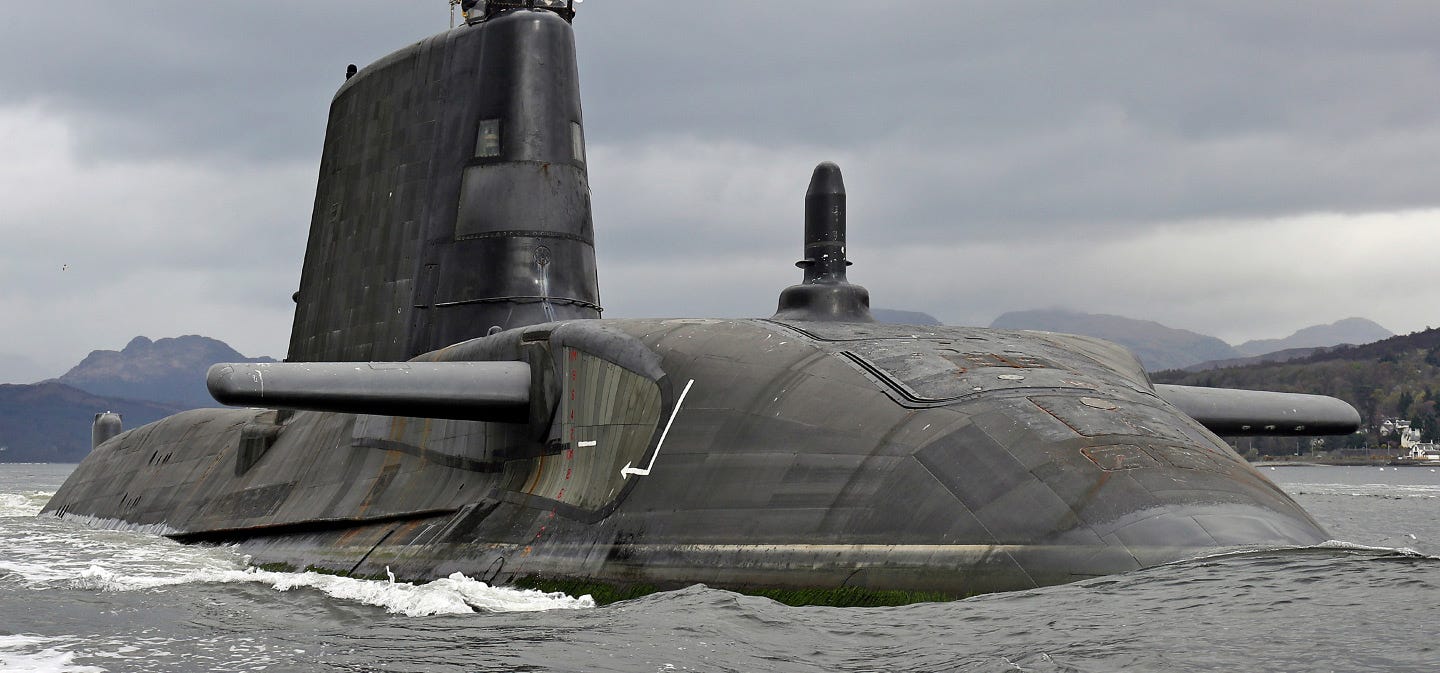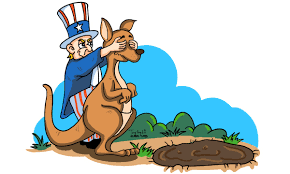Dear fellow China Watchers
Last week’s announcement of the new pact between Australia, the UK, and the US left much of the political and defence world stunned. Yet, typical of the Western-centric debate that surrounds China, most of the media’s reaction has revolved around Paris’ reaction, rather than the thoughts of Beijing, the supposed target of this new alliance.
Today I want to correct this deficit and understand how China will react to AUKUS. To do so I’m joined in conversation by my frequent collaborator and China expert, Alex Neill. We cover the ways that Beijing will push back on the alliance diplomatically and militarily, what this means for Taiwan, and why Australians are back to being running dogs.
Please feel free to comment, like, and share, and I’ll be back next week.
Many thanks for reading.
***
Sam Olsen: What has China’s reaction been so far to the announcement of AUKUS?
Alex Neill: It’s fair to say that Beijing is angry about it. The Global Times [the Chinese Communist Party tabloid] has been particularly vociferous, threatening missile strikes on Australia. The term “running dog” is normally only used to describe other countries when China is particularly incensed – this is the phrase that they have used to describe Australia.
The official line taken by the China’s Ministry of Foreign Affairs is that the US is contravening nuclear proliferation agreements, and they have accused the US and UK of creating a ‘nuclear submarine fever’ across the region which the Allies will take advantage of by more exports. Beijing has also suggested that this nuclear technology is not just for nuclear propulsion, and that the Australians may develop a nuclear weapons capability.
China has long accused the US of wanting to contain it, and the new alliance has been used by Beijing as evidence for this. In effect, they accuse western powers of laying siege to China, which is turning the containment narrative up a notch.
SO: Is Beijing going to do more to counter this diplomatically?
AN: In a word, yes. They are probably going to focus on the nuclear proliferation angle, in effect asking countries in Asia if they are willing to see nuclear technology spread across the region. This is a way to try and tip countries that are trying to balance between Beijing and Washington into China’s camp.
Second, they are going to push the line that America is an unreliable partner, for example running away from Kabul, but also that it knifed France by usurping Paris’ submarine deal. They will link this to the futility of Taiwanese soldiers dying in a war in which the Americans don’t turn up. In other words, they’ve ditched the Afghan Army, they’ve ditched the French, they’ll ditch the Taiwanese army too.
Third, they’ll talk about how Australia is an unwelcome western outpost in the region, to delegitimize Canberra in the eyes of Asian countries. Western countries are painted as being bully boys and adopting a “my way or the highway” attitude, in contrast to how Beijing thinks the world should see it.
All of this will be conducted by a renewed emphasis on Wolf Warrior diplomacy, especially against America. But there is also a wider message for Japan, which China wants to warn about helping the US to defend Taiwan. China and Russia may echo each other's disdain for AUKUS as a hypocritical and destabilizing alignment and a product of a Cold War mentality.

SO: There hasn’t been much commentary about China’s possible military reaction to this - do you think there could be one?
AN: China will likely do some sabre rattling to show their displeasure, for example missile launches or aggressive patrols around Japan, Taiwan, or the South China Sea. They may become more assertive against Allied assets, maybe - at a push - targeting the HMS Queen Elizabeth Strike Group with some nuisance patrols.
They may also decide to forward deploy some of their own submarines, for example in the Spratly Islands in the South China Sea, and maybe nuclear-capable bombers too. It wouldn’t be a surprise to see them conduct some submarine-based missile launches too.
It’s important to note that the military side of the agreement is a potential worry for China. The Allies [Royal Navy, the Royal Australian Navy, and the US Navy] have decades of experience in submarine warfare, the PLAN [the People’s Liberation Army Navy] less so. But the PLAN are developing more asymmetric warfare capabilities underwater, for example drones, and this could lead to a new arms race in new cutting edge technologies. The new alliance could be a good platform for trailing this.
China’s Strategic Support Force – which brings together new technologies like space and cyber – will be deployed to counter the Allies. We can also expect to see them push up against US outposts like Guam more as they seek to make the Allies think about what they are doing.
Finally, there is a chance that China may become more ambiguous about its no-first-use nuclear strike position. They are anxious about Taiwan, and they may want to suggest that if their assured retaliation capability is undermined their no first use pledge is off the cards.

SO: Information operations are a key part of Beijing’s strategy, both internally and externally; what will they mount to counter the alliance?
AN: They will be feeding the diplomatic narrative - about the Allies spreading nuclear technology, and further containing China - into their own media channels, and into countries in their own orbit.
The aim of this is to shore up domestic support, and to drive a wedge between the Allies and countries in Asia.
SO: Do we think that this alliance, and China’s response, will have an impact on America’s desire to defend Taiwan if China invades?
AN: There is the argument that Biden has a lack of empathy for alliance partners, for example Afghanistan and France, and so Taiwan might be more vulnerable after the Fall of Kabul.
But it is perhaps more helpful to look at Taiwan as being analogous to Israel, as some in the US strategic community have suggested. If Israel was about to be invaded then America would certainly look to defend them, and given American support for the island since the early 1950s [when Chairman Mao was put off invading by President Eisenhower] it is probably the same with Taiwan.
The US’s lack of public certainty on its position on Taiwan is often spoken about, in that Washington has not made defending the island a cast-iron certainty. But America uses strong words to show what it really means, for example warning that any country trying to change the status quo in the Western Pacific would face serious consequences. In other words, it’s pretty certain that the US would defend Taiwan.



